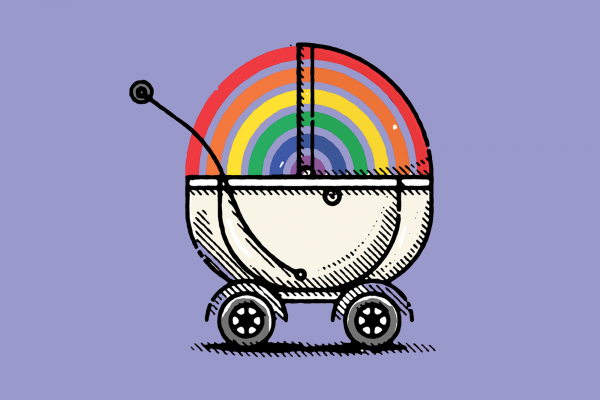A succession of lawsuits involving the state of Michigan, the American Civil Liberties Union, and Christian adoption agencies has again pitted religious freedom against LGBTQ rights.
In 2017, after a same-sex couple seeking to adopt was turned away by Bethany Christian Services and St. Vincent Catholic Charities, the ACLU took the couple’s case to court. In March, the case was settled in favor of the LGBTQ clients. Adoption agencies that receive funds from the state of Michigan can no longer turn away LGBTQ couples or individuals because of religious objections. In response, Bethany—the largest Christian adoption and foster agency in the U.S. and headquartered in Michigan—reluctantly changed its policy in the state to allow LGBTQ couples to foster children. In contrast, St. Vincent filed a follow-up lawsuit against the state human services department.
“We are disappointed with how this settlement agreement has been implemented by the state government. Nonetheless, Bethany will continue operations in Michigan, in compliance with our legal contract requirements,” a Bethany spokesperson said in a statement. “We are focused on demonstrating the love of Jesus Christ by serving children in need, and we intend to continue doing so in Michigan.”
Religious freedom cases involving adoption are highly contentious. However, the weaponization of Christianity against LGBTQ people not only violates the Christian directive to love but misses the moral complexity in people’s lives.
“The rhetoric is so one-sided. It creates this dichotomy where it’s impossible for folks to conceive that someone who is LGBTQ could also be Christian,” said Kat Bowling, a leader and activist in Atlanta’s queer Christian community. “LGBTQ Christians are just as capable of raising children in healthy, nurturing faith environments as are heterosexual families,” said Bowling. She believes her right to adopt should not be limited by something that has no impact on her ability to parent.
But it’s complicated. In the U.S., all adoption agencies must be licensed with the state—and most faith-based agencies rely on state referrals and tax dollars to keep their adoption and foster programs going. Bowling believes that if LGBTQ Americans pay taxes, then this money should not be “used against them for their own discrimination.”
Jimmy Itczak, a gay Christian on staff at a Presbyterian church in Missouri, and his husband are currently raising funds for adoption. Itczak “doesn’t like the idea” that Christian adoption agencies receiving government funds can choose whether to represent LGBTQ couples, but he doesn’t think these policies have impacted his family’s adoption search. “As sad as it is, I’m very cynical about Christian adoption [agencies],” said Itczak. “My assumption is that they are not open to LGBT adoptions.”
Why do LGBTQ couples turn to Christian adoption agencies in the first place? Kristy and Dana Dumont, the LGBTQ couple involved in the ACLU’s Michigan cases, attempted to adopt from Bethany and St. Vincent because of the agencies’ location and services. Though the Dumonts are not Christian, they wanted to adopt from agencies in their county so they could keep children close to their families and schools, and they wanted to adopt older children, something Bethany and St. Vincent specialize in. Christian adoption agencies are much more likely than other agencies to work with special-needs children, sibling groups, and older children.
Bowling thinks Christian LGBTQ couples may want to work with agencies that share their religious worldview. “Why wouldn’t you consider institutions within your faith?” she asked. “LGBTQ folks should not be limited because of their orientation when they have the same deeply held religious beliefs that in many other ways would align with an agency.”
There are more than 13,000 children in foster care in Michigan, more than 300 of whom need adoptive families. When the Michigan foster-care crisis is politicized, culture wars overshadow the children whose health and welfare must be our priority.
“What’s important is bringing awareness to the kids in foster care,” said Kristy Dumont. “It’s about providing families for children.”

Got something to say about what you're reading? We value your feedback!




